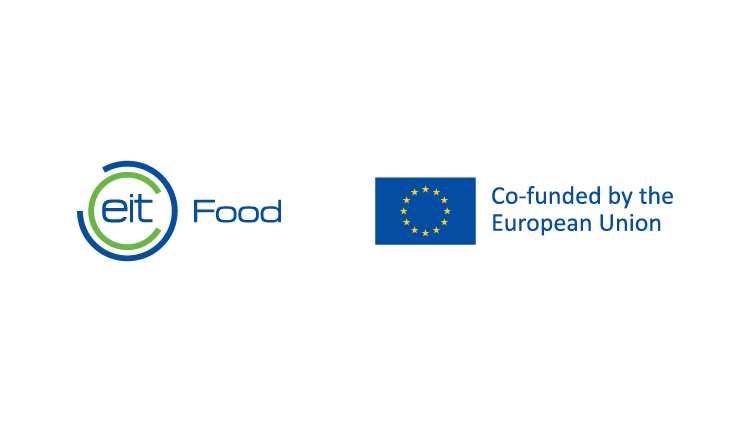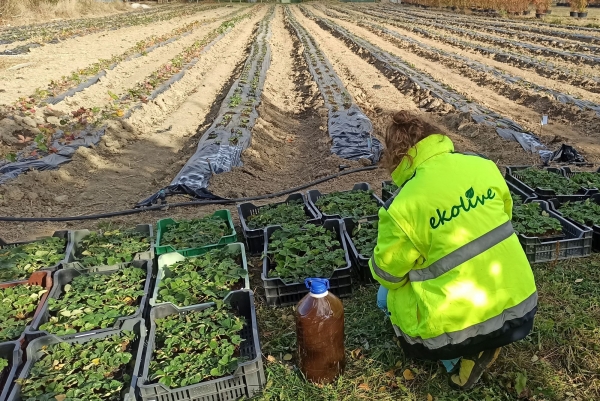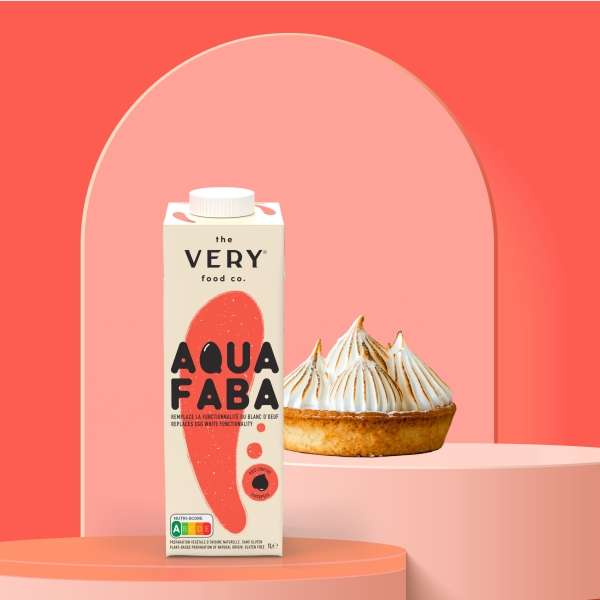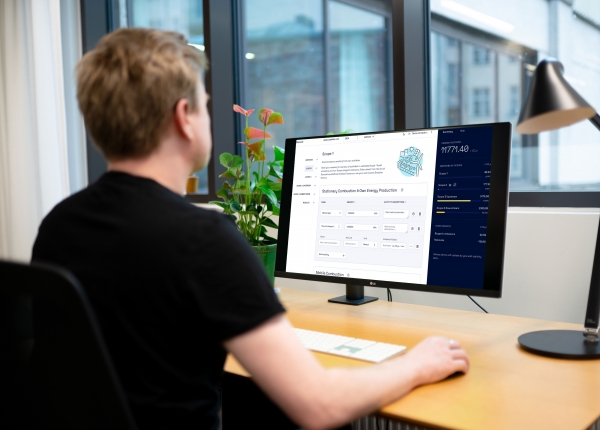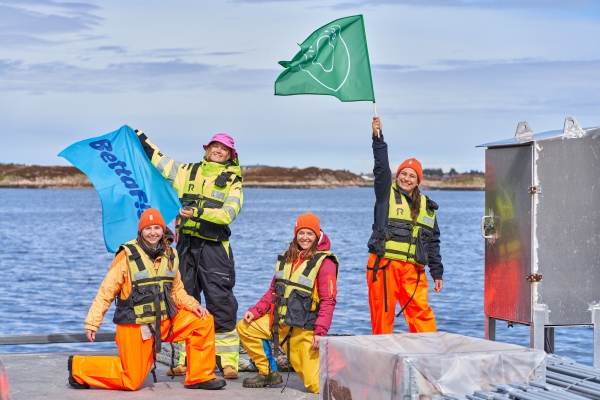Promotional Features
From farm to fork: 10 start-ups disrupting the market and transforming the food system
Innovation has a vital role to play in helping us unlock new ways to produce, manufacture, trade and consume food.
These are solutions that we urgently need to move towards a more healthy, sustainable and resilient future. Increasingly, we are seeing creative start-ups enter the market with innovations for every stage of the food supply chain. From transforming food production in farms and fields to minimising food loss and waste, there seems to be no end to the positive impact entrepreneurs are achieving.
Accelerating and scaling these innovations is essential for the future of the food industry. We need a diverse range of solutions working together in order to solve the climate and health challenges facing our global food system.
The following ten successful start-ups are already implementing their trailblazing ideas to help farmers transition to more sustainable food production methods; to offer healthier, more transparent products to manufacturers and retailers; and to empower consumers with a greater choice of sustainable, nutritious options on the shelves.
These start-ups are all from the European Institute of Innovation and Technology (EIT) Food ecosystem, receiving expertise, networking, financial opportunities, and access to the world’s largest and most dynamic food innovation community.
Innovating for sustainable food production
As farming is the backbone of our food system, farmers face the dual challenge of feeding a growing population while safeguarding the environment. And while it may not be the first thing that springs to mind when we think about food, soil is the fundamental building block on which our entire food production system rests.
Healthy, well-nourished soils create the right conditions for plants to grow and thrive. But with 61% of EU soils in a degraded state, and the process of creating soil typically taking centuries, we face a significant threat to our food system without tackling the problem at its source.1
Enter Ekolive: a scaleup which has developed a patented eco-bioleaching technology to accelerate the process of soil regeneration from centuries to mere days. By harnessing the power of probiotic bacteria, Ekolive not only revitalises soil but also enhances crop resilience and nutrient content.
For farmers and the food industry, Ekolive offers a low-cost, ecological solution that secures harvests and yields. With its techniques adapted from those originally developed for processing waste and low-grade minerals, Ekolive is a model for the possibilities of open innovation. The scaleup has existing facilities in Slovakia and Germany and is now working on expanding globally, negotiating three new bioleaching operations outside of Europe.
Another growing solution which is supporting farmers is precision agriculture – but this can be complicated to use and costly to deploy. German start-up GeoPard Tech has the solution: a cloud-based platform which provides analytics for agricultural data all in one place. Through data-driven insights, farmers are empowered to optimise their resource use and adapt to sustainability challenges, while mitigating economic risks.
The start-up – which is part of the EIT Food Accelerator Network – has already partnered with several leading agricultural firms, including John Deere and Corteva, and is now working with Indigo Ag to deliver sustainability solutions to farmers and agribusinesses globally through carbon and biological programmes.
Sustainable, healthy and transparent products for manufacturers and retailers
Manufacturers and retailers play a pivotal role in shaping consumer choices. And with increasing demand for healthy and sustainable products, but a lack of consumer trust in these food system actors, agile start-ups are injecting fresh ideas to transform food products and processes for good.
One successful start-up ensuring the safety and authenticity of our food is Microfy.AI. The Spanish company has produced the first intelligent microscopes to assess the quality of honey on-site. The technology has no effect on the honey’s freshness or nutritional value, and offers a solution for producers, traders and packers to enhance value chain transparency. Companies that utilise Microfy.AI also benefit from reduced operation costs as their quality analysis processes are possible on site of production or manufacture.
Another innovation improving trust and transparency is Nectariss, which is tackling a growing challenge for truffle-lovers everywhere. Notoriously difficult to source, truffle is an earthy, unique flavour which companies often attempt to recreate with synthetic flavourings. This has led to customer dissatisfaction, both with the taste and the lack of transparency around the use and source of synthetic flavourings.
Nectariss has developed breakthrough technology to produce truffle flavours through fermentation, made with real truffle funghi. Producers are able to take the Nectariss flavours and integrate them into products including oils, nuts and pastes. Nectariss has recently reformulated all its products to get rid of the allergen lactose, and its latest innovation is a natural white truffle flavour.
Improving the sustainability of food products depends on having sustainable ingredients. French start-up The Very Food Co has launched into market an innovative solution – the Very Aquafaba, a plant-based alternative to replace egg whites. The Very Aquafaba is allergen-free, shelf-stable and is made with just one ingredient, chickpea water.
With demand for plant-based alternatives continuing to rise, accelerating protein diversification is critical to meeting consumer demand while shifting towards healthier and more sustainable diets. By supplying its ingredient to manufacturers, food service companies, bars, hotels, bakers, pastry chefs and even mixologists, The Very Food is already shaking up the food industry.
Across Europe, it is becoming increasingly important for companies to accurately define and communicate their environmental impacts. With EU regulations coming into force, food manufacturers will be obligated to report their environmental impacts. For example, the Scope 3 emissions law now requires companies to report indirect emissions from upstream and downstream activities. But making calculations on environmental impacts such as carbon footprints is no small task.
To combat this challenge, Helsinki-based start-up Biocode has generated an easy-to-use carbon footprint calculator for food production, which equips companies across the food value chain with the information required to make informed, climate-friendly decisions, whilst helping them meet the growing regulations in the EU.
One of the most sobering statistics in the agrifood sector is that one-third of all food produced is wasted.2 However, Europe’s agrifood innovators are increasingly stepping in with solutions. Kern Tec is one such start-up, valorising food waste by upcycling fruit pits into plant-based products.
By obtaining valuable oils and proteins from the seeds hidden away inside the pits, foods are given a second life. These ingredients are transformed into a base compound for alternative dairy products such as plant-based milk, yoghurt and cheese. This type of upcycling model could even lead to new business opportunities for farmers by increasing the value of crops.
Empowering consumers with nutritious, sustainable choices
Consumers are the driving force behind systemic transformation, but they need options that align with their values. In a world inundated with choices, creative start-ups are offering new products which allow consumers to make informed and healthy decisions for a better, more sustainable future.
Innovation in protein diversification is a crucial part of achieving a net zero food system – and finding alternatives to seafood offers huge potential to support ocean conservation efforts. Last year, for the first time, a 3D-printed food hit the shelves of European supermarkets. This was ‘The Filet’, a plant-based alternative to salmon created by Revo Foods.
The Filet is high in amino acids, filled with key vitamins and free from sugar, gluten and cholesterol. In March, Revo Foods – which is part of EIT Food’s RisingFoodStars programme – celebrated another world’s first: ‘The Kraken’, which is a vegan alternative to octopus. By facilitating networking sessions with experts in the field, EIT Food supported Revo Foods to test and receive guidance on its concepts before bringing them to market.
Another exciting innovation in the alternative seafood space is Bettaf!sh's TU-NAH Can. Although it both looks and tastes like tuna, it is made from regeneratively farmed European seaweed. Not only is this product 100% plant-based, it is shelf-stable for a year, helping to combat food waste. Sales to date claim to have spared 134 tonnes of tuna fish and 136 tonnes of bycatch (marine life caught unintentionally during fishing).3
What’s more, Bettaf!sh is committed to generating sustainable economic opportunities to coastal communities in Europe. This start-up is truly creating positive social, environmental and economic impacts alongside their interesting and tasty products.
While plant-forward diets are on the rise, so are allergies. Today, one in four European children has a food allergy, which threatens the health and wellbeing of millions.4 A study has shown that introducing peanuts at an early age can significantly decrease the frequency of the development of peanut allergies among children at high risk.5
Vini Mini is on a mission to support parents and carers in this practice by offering an easy, healthy and safe way to introduce allergens to a baby. Parents can safely test whether their child is allergic to nuts, and if they are not allergic, the start-up offers products to maintain the allergen intake for a further six months.
Whether supporting farmers, revolutionising product transparency, or empowering consumers, each of these innovations is bringing us closer to a future where food can be a force for good.
By celebrating these innovators, we can help their products and solutions to continue succeeding on the market, and inspire manufacturers and producers across the food value chain to work alongside them and continue innovating solutions to the challenges facing our food system.
References
1. European Commission. EU Soil Observatory.
2. WFP. 5 facts about food waste and hunger.
3. BettaF!sh. The tastiest f!sh is made from seaweed.
4. Allergy 2003: Today, one child in four has an ongoing allergic disease in Europe.
5. Du Toit, G.; M.B., B.Ch.; Roberts, G.D.M.; et al. (2015). Randomized Trial of Peanut Consumption in Infants at Risk for Peanut Allergy. The New England Journal of Medicine. Vol 372, No.9.

